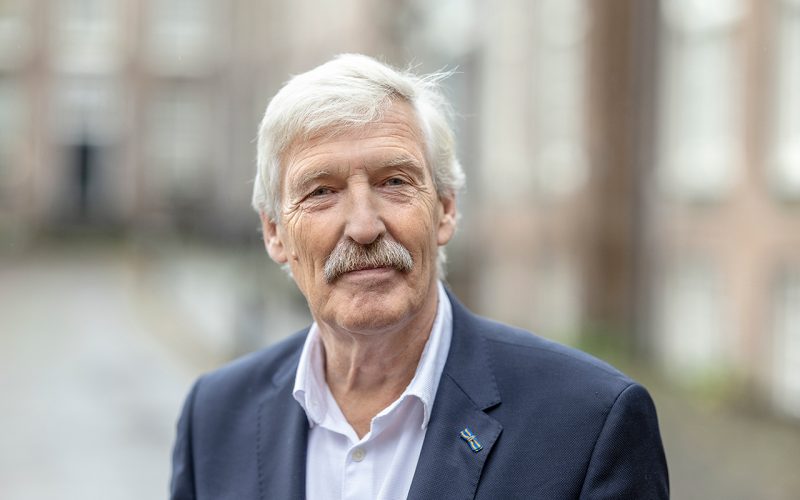After a meaningful career spanning nearly thirty years, Rick Grobbee officially bids farewell to UMC Utrecht. As a clinical epidemiologist and (university) professor, he played a major role in the development of clinical epidemiology. On Friday 9 May, he delivered his farewell lecture in the Dom Church, titled ‘Choices and Opportunities’. We look back with him — and ahead to what’s still to come.
Rick Grobbee explains: “The theme ‘Choices and Opportunities’ was a central thread throughout my career. New opportunities kept presenting themselves, often unexpectedly. And if you never choose, you’ll never move forward. Looking back, I see that it was precisely those choices that kept me progressing.”
After starting at art school, Grobbee studied medicine at Utrecht University and earned his PhD at Erasmus University Rotterdam with research on hypertension (high blood pressure). After a brief period as a trainee internist, he returned to Erasmus University Rotterdam, where he became associate professor and, in 1993, professor of Clinical Epidemiology.
“Making a choice sometimes also means giving something up. For example, when I left Erasmus University Rotterdam in 1996 to become a professor of Clinical Epidemiology at UMC Utrecht. Both were fantastic environments to work in, ultimately. But I missed a close connection to clinical practice in Rotterdam — something I could build in Utrecht.”
That same year, Grobbee founded the Julius Center in Utrecht, where primary care, research, and education come together to improve patient care. “I love building things — so that one plus one becomes more than two. At the Julius Center, we bring together epidemiology, general practice, and health sciences. We started with about twenty people; now we’re six hundred strong.” Grobbee also initiated the establishment of the Julius Health Centers in Leidsche Rijn — a unique academic workplace for general practice. In 2010, he continued his efforts in patient care as chair of the Center for Circulatory Health at UMC Utrecht.
Grobbee also served as program director of the master’s and PhD programs in Epidemiology. “When I came to UMC Utrecht, there wasn’t yet a formal training for clinical epidemiologists. So we transformed the internal PhD curriculum we had created into this international master’s program.” Together with Arno Hoes, Grobbee also authored the textbook Clinical Epidemiology.
In 2010, Grobbee was appointed University Professor of International Health Sciences and Global Health. This marked a shift in his focus towards health disparities in low- and middle-income countries. “During my travels, I saw massive inequality, and this deeply affected me. Education and research in these countries is where we can really make a difference.” Motivated by this belief, he co-founded the e-learning platform Elevate in 2012, making the full master’s program available online to a global audience.
With more than 1,500 scientific publications, Grobbee has left a lasting mark on clinical epidemiology, particularly in the field of cardiovascular disease. For his work, he received multiple academic awards and was knighted in the Order of the Dutch Lion. He also played a foundational role in many scientific initiatives. “That entrepreneurial side of science — turning an idea into practice — suits me well. And it ensures your research truly matters in the real world.” In 2008, he founded Julius Clinical, an independent research organization for large-scale drug studies. Today, Julius Clinical conducts research involving 120,000 patients in over thirty countries.
Over the course of his career, Grobbee supervised nearly 200 PhD candidates and was named Supervisor of the Year four times. “I’ve conducted nearly all of my research in collaboration with PhD candidates. I truly enjoy that teamwork — it often sparks new ideas.” His advice for these young researchers? “Choose what you truly enjoy — what your heart is in. See opportunities, and seize them. That’s what I’ve always tried to do.”
Grobbee isn’t planning to completely retire just yet. “I’ll be taking it a bit easier. I’ll stay on two days a week at Julius Clinical and one day at UMC Utrecht, and I’ll continue supervising my PhD students. Stopping completely right away isn’t for me. Besides that, I have a hundred more plans — from making music to perhaps doing something with art again.”
